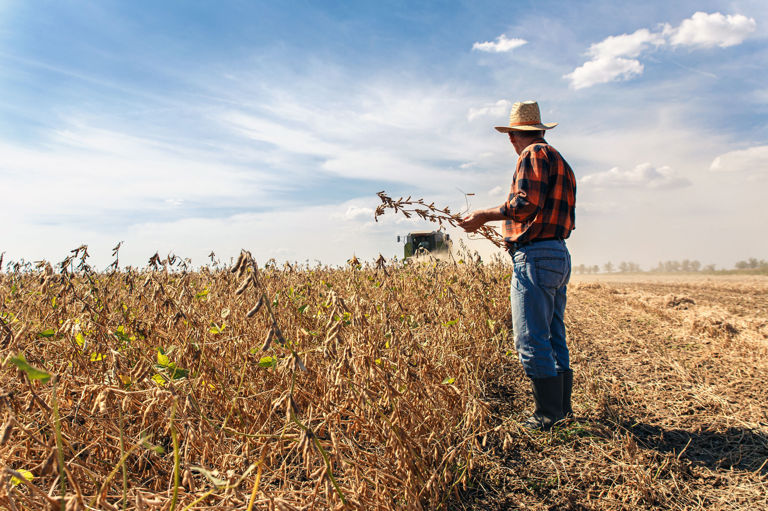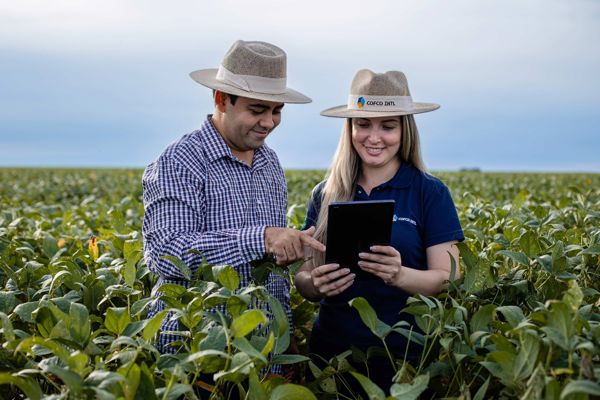
Our commitment to protect and respect people and communities
The complex journey of an agricultural commodity passes through farmland, villages, ports and factories, sometimes in the world’s most remote corners. Inevitably this work impacts tens of thousands of people.
Whether directly or indirectly involved, COFCO International wants these impacts to be as positive as possible. This philosophy has defined the company’s approach to human rights and labour when buying, storing, processing, transporting and trading agricultural goods around the world.
“We believe that our business interests can go hand in hand with interests of the environment, the people and the communities we work with,” says Wei Peng, COFCO International’s Head of Sustainability.
“That’s why, ever since our company was set up, we embedded the respect for labour and human rights into policies that govern both our own operations and our relationships with business partners and suppliers.”
Better visibility
To ensure these commitments are met, COFCO International continuously monitors and reassesses the key human and labour rights issues that are relevant to its operations, supply chains, and rightsholders.
“Establishing whether we might cause, contribute to, or be linked to any adverse impacts either through our own operations or through our business relationships is a top priority,” Peng says.
From fair labour practices, health and safety through to indigenous rights and gender issues, COFCO International is working to establish a systematic approach to human rights in its value chain. In early 2020, the company partnered with BSR, an independent sustainable business non-profit organisation, to conduct a corporate human rights impact assessment of COFCO International’s global operations and key supply chains.
The exercise identified key potential risks and gaps, and recommended ways to prioritise and address them (see case study below: Human Rights Impact Assessment).
Traceability key to human rights
Traceability, the ability to track a product back to its point of origin, is critical to building supplier profiles, including their track record on human rights.
The company has been investing heavily into the traceability of its key commodity supply chains. For example, it has committed to achieve full traceability of its direct soy sourcing across Brazil by 2023.
“We have mobilised a lot of resources to engage with suppliers, establishing links between individual contracts and specific farm plots,” says Peng.
“The more information we have about the origins of our products, the better positioned we are to take meaningful action and to leverage our influence for human rights and other sustainability issues.”
Upstream, COFCO International will focus on solutions either through direct intervention with its suppliers or by leveraging the collective power of buyers, customers, and multi-stakeholder initiatives. It will also look to improve oversight and visibility of its freight, ground transport, and logistics operations.
“Responsible supply chains can only be achieved if all players work together,” Peng says.
“That’s why we need to mobilise and engage the right platforms that will help the industry take collective action towards responsible supply chains.”

Human Rights Impact Assessment
COFCO International has completed an in-depth assessment on how its operations might impact human rights along its global value chains.
Conducted by BSR, a global sustainable business consultancy, the assessment is based on the United Nations Guiding Principles on Business and Human Rights. It aims to identify the company’s key potential impacts on human rights when sourcing, storing, processing, trading and transporting agricultural commodities, as well as opportunities to further improve the company’s existing systems for mitigating such impacts.
The assessment began in January 2020 with a mapping of the company’s key operations and commodity supply chains, along with a desktop review of the most relevant human and labour rights issues and rightsholders. This was followed by a review of company policies, management procedures and audit reports, to establish the baseline of current practices. To further understand the operational boundaries, business relations and possible leverages, a series of interviews were also conducted with division managers and operational staff.
The assessment has helped the company clarify priority risks for its various operations and identify gaps in its current policies and practices in order to mitigate such risks. The most highlighted challenges include occupational health and safety, fair labour practices, gender impact and forced labour. Access to grievance mechanisms and impact on local communities were also flagged as priority issues.
Based on this assessment, COFCO International is developing an action plan to further enhance its policy commitments and operational procedures towards better oversight and management of human and labour rights impacts, both direct or indirect.

Ensuring fair labour practices for seasonal and temporary workers
Seasonal and temporary workers play a critical role in agricultural supply chains, especially at the peak of harvest when there are increased workloads and often labour shortages. But seasonal workforce can be vulnerable in terms of labour rights, particularly in remote locations.
The reasons for this are complex. Seasonal and temporary workers are often hired and managed by third parties, a practice resulting in insufficient oversight and accountability. In other cases, Environment, Health and Safety (EHS) training may be inadequate. In remote rural areas, shortage of appropriate accommodation and transportation pose challenges.
To respond to these challenges, COFCO International conducted due diligence on the working conditions for seasonal and temporary workers at its global sites, looking in particular at labour contracts, payments, work hours, health and safety, and accommodation conditions.
Focus was placed on the seasonal workers at grains and oilseeds operations in Brazil. The company introduced monthly health, safety and labour audits by its EHS and Operations teams and improved corporate procedures on third-party hiring and management.
Measures were also taken to improve seasonal workers’ access to COFCO’s global grievance mechanism – the Integrity Hotline, a critical tool to share and address issues related to recruitment and work.
